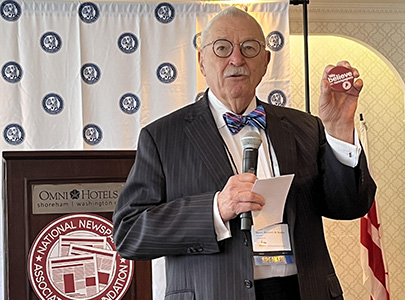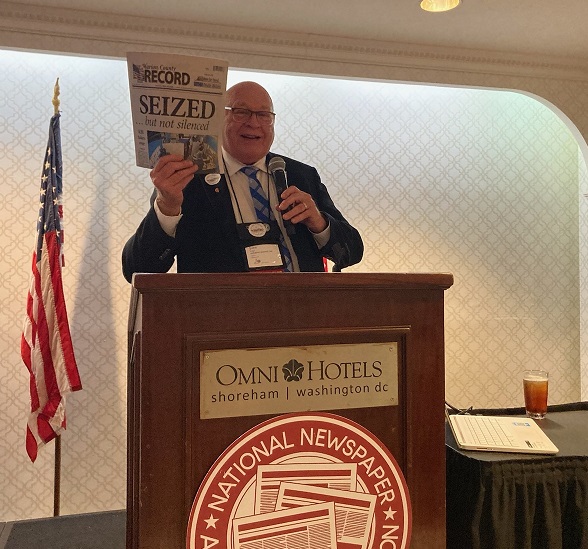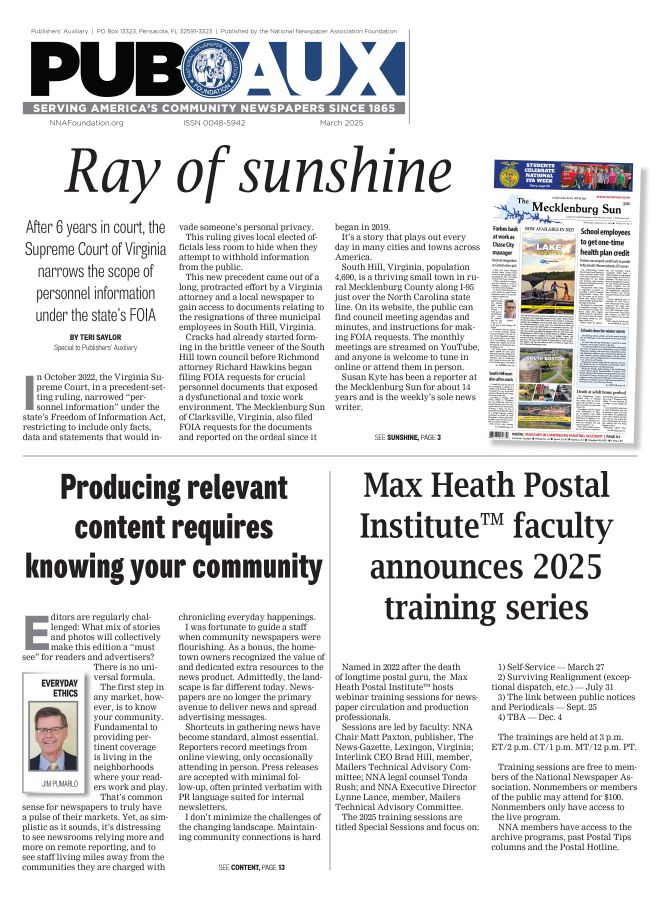American students should learn about Christmas in schools
First Five by the Freedom Forum Institute
Dec 23, 2020
DAVID CALLAWAY
Download Word doc here.
December can be a controversial month in public schools. Millions of Americans are celebrating holidays like Christmas, Hannukah and Kwanzaa. Public-school educators, many of whom are celebrating themselves, are looking for creative and engaging ways of bringing some of that holiday cheer into their classrooms.
Conversely, parents are subjected to a steady stream of homework assignments and classroom party requests that range from educationally sound to legally dubious, resulting in questions such as: “Can my child’s teacher even talk about religion in public school?” or “Why are they learning about Christmas anyway?”
Here’s how students can learn about Christmas and many other holidays as part of a well-rounded public education that respects First Amendment rights for all:
Is it constitutional to teach about religion in public schools? Yes!
Organizations from across the religious and political spectrum offer seemingly contradictory proclamations about the role and value of religion, so it is understandable that many Americans are confused about what is constitutionally appropriate.
In 1963, the Supreme Court ruled 8-1 against Pennsylvania’s School District of Abington Township, which required students to read from the Bible each morning. Because publics schools are an extension of the government, the justices rightfully saw the practice as a violation of the Establishment Clause, which prohibits the government from favoring, or “establishing," any single religion over another. Moreover, in a pluralistic society, parents from varied backgrounds want to know their children can receive a public education without being indoctrinated into a faith not their own.
Critically, this does not mean schools should omit any discussion of religion in the classroom. In fact, Justice Thomas Clark foresaw such arguments:
“… it might well be said that one's education is not complete without a study of comparative religion or the history of religion and its relationship to the advancement of civilization. It certainly may be said that the Bible is worthy of study for its literary and historic qualities. Nothing we have said here indicates that such study of the Bible or of religion, when presented objectively as part of a secular program of education, may not be effected consistently with the First Amendment.”
Justice Clark carved out a method for teaching about religion in public school, going so far as to suggest religious literacy might be an essential aspect of any complete education. In contrast to a devotional approach, which is concerned with how a particular doctrine or text may impact the daily life of a practitioner, an academic approach is one that is seeks to neutrally understand that same doctrine or text through its historical impact, asking questions like, “Who wrote this verse” and “What was the author’s community like?” Devotional and academic approaches are not mutually exclusive; many believers and academics employ both approaches in their personal and professional lives, however, the Establishment Clause limits public school teachers to only teaching about religion from a non-devotional, neutral standpoint. Teachers and parents can be assured their school is following constitutional guidelines when the school strives to broaden students’ awareness of other faiths without asking students to accept them as equally valid expressions of religiosity, when curricula focus on the study of religion, not its practice, and when educators and administrators expose students to the diversity of religious views without imposing those views on students.
Should students learn about religion in public schools?
There are legal and moral considerations to weigh in addition to pedagogical concerns when deciding whether or how to teach about religion in the classroom. Despite those challenges, globalization and technology have dramatically amplified our contact with different peoples and ideologies and, therefore, the need for understanding one another across our differences has never been greater.
Religious literacy helps students encounter new people and ideas without hostility or fear, understanding how deeply held beliefs shape the mundane and sacred lives of billions of people every day. But just because it is permissible or even desirable to teach about religion academically, public school teachers should avoid jumping into the constitutional deep end unprepared.
In a pluralistic country like America, religious literacy is even more necessary as a civic virtue for living in a diverse democracy. Public school classrooms are one of the few remaining places where we are compelled to come together across differences to achieve common goals — where young Americans can learn and practice how to live with their neighbors who think, look, cook and pray differently than they do. Therefore, teachers, students and parents must go beyond academic performance or career-readiness to include this civic responsibility.
Increasing religious literacy is also likely to combat stereotypes and violence, especially against marginalized communities. According to the U.S. Department of Justice’s “Hate Crime Victimization, 2004-2015” report, the percentage of hate crimes motivated by religious bias was nearly three times higher in 2012 (28%) than in 2004 (10%). FBI reporting also reveals that a disturbing percentage of hate crime offenders are school age, with 15 percent under age 18 in 2015, 19% in 2014, and 32% in 2013. There is no panacea for such violence and hatred, but studies have demonstrated that religious literacy can be a key factor in fighting ignorance and reducing harmful stereotypes among students.
Should students learn about Christmas in public schools?
Religious holidays can be an exciting and engaging topic for young students. The problem arises when schools or teachers focus solely on one holiday or one religion. Such an approach not only limits the diversity students are exposed to, but also violates the Establishment Clause of the First Amendment. Stakeholders should ensure their public school district follows, or at least publishes, an inclusive holiday calendar that is responsive to the evolving demographics of the community and country. To meet both the legal requirement under the Establishment Clause as well as the responsibility to prepare students for life in a diverse democracy, educators should teach about holidays from a variety of traditions throughout the school year. For example, a lesson about the lunar cycle can include a discussion of the beliefs, behaviors and communities of belonging around different lunar festivals like China’s mid-autumn Mooncake Festival or an exploration of lunar calendars like the one used by Jews to denote sacred holidays. This approach also helps educators avoid placing unfounded significance on some holidays, like Hannukah, which is a relatively minor Jewish holiday, to teach about Christmas solely because they are close in date.
Above all else, educators must be ready to enrich students’ understanding of history and culture while not promoting or denigrating religious belief. In doing so, teachers have an opportunity to prepare students for living in a pluralistic society that values the beliefs of all people, religious or not.










